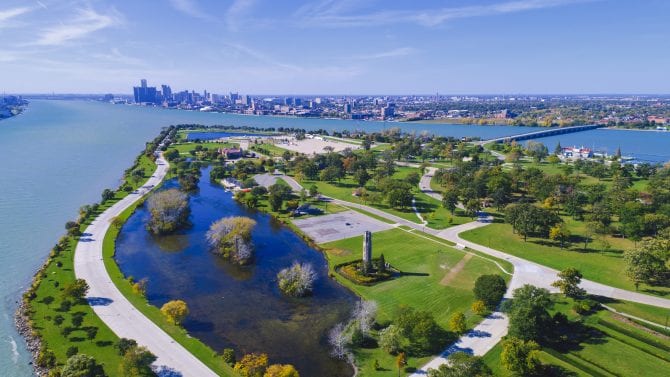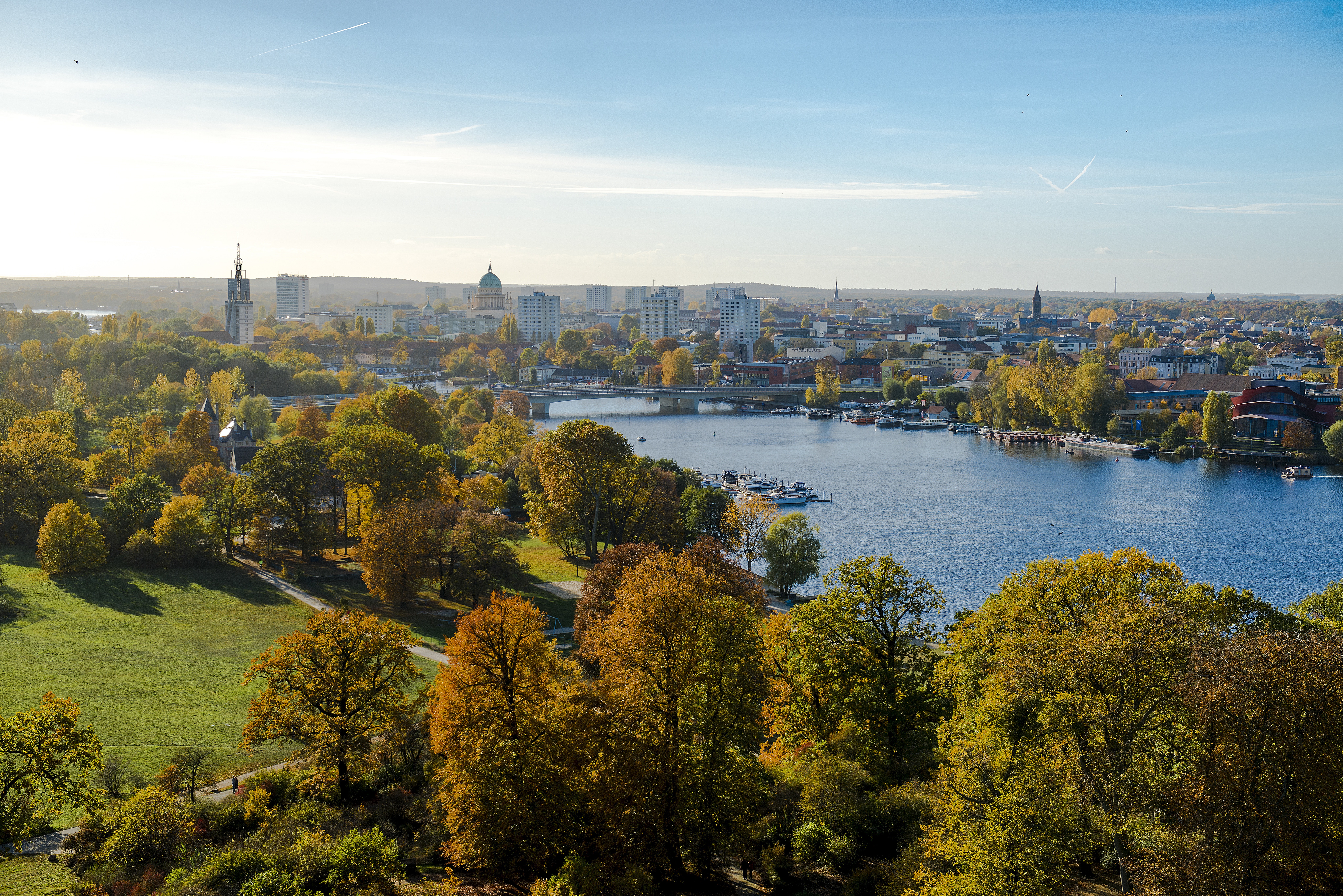
This blog was provided by MI Blues Perspectives.
Parks and public green spaces are more than just trees and grass to private companies.
There’s an economic component to parks that’s not always obvious when it comes to talent recruitment and talent development, said Suzanne Miller Allen, director of community responsibility for Blue Cross Blue Shield of Michigan.
Speaking Jan. 29 on a panel at the Michigan Recreation and Park Association, or mParks, conference in Novi, Allen described how critical parks are to attract the kinds of talented individuals that businesses need to be successful.

Allen also described the MIBigGreenGym partnership with mParks and the Michigan Department of Natural Resources. This partnership highlights the beautiful recreation assets in Michigan and the health value of being outside.
Parks create a sense of place for a community – which in turn can lure new businesses, employees and residents.
Public green spaces are also an asset to connect people to one another, which brings a significant mental health benefit.
Jason Zogg, co-founder and urban design lead at Ford Mobility, said the value of the serendipitous connections that can occur when people interact in a public space are important to Ford. That’s part of the reason why the new mobility campus in the works at Michigan Central Station in Detroit’s Corktown neighborhood will not include a corporate cafeteria, Zogg said.
The connection between parks and health is also a considerable factor for companies, especially due to the ever-rising cost of health care.

Gary Kirsh of ITC Holdings who also spoke on the panel, said employees at the ITC corporate campus are encouraged to conduct walking meetings on their outdoor trails.
When there’s a lack of green space, or a lack of safe connections to green space, it is more difficult for health care organizations to help patients change their lifestyles, said Harvey “Chip” Amoe III, the director of sustainability for Henry Ford Health System.
“When we’re sending people out to the same unhealthy environment from which they came, they’ll be right back in,” Amoe said. “What’s more impactful: 300 people that signed up for a diabetes program … or thousands of people using a waterfront walkway?”
Creating connections to green spaces can be a part of the public planning process.
One of current barriers the panel identified was the way prospective businesses are handled by a city or township’s staff. Often new companies meet with the economic development team, and the parks department is never introduced.

Additionally, parks don’t have to be managed directly by the public entity that owns it. Consider Campus Martius in downtown Detroit, or the High Line in New York City. Both are managed by organizations, not the cities themselves, and are highly regarded public spaces.
Instead of asking what kind of incentives are available, businesses interested in locating in Michigan are now asking if there is an available site for them and if the talent pool is there, said Tino Breithaupt, senior corporate relations executive at the Michigan Economic Development Corporation.
Talented people aren’t moving to new places because of a job; they’re moving because they like the area, Breithaupt said. That’s the power of parks.
Main image photo credit: pawel.gaul
This blog was provided by MI Blues Perspectives. As a Wellness Works partner, Blue Cross Blue Shield of Michigan shares content developed by subject-matter experts to provide well-rounded information to our readers.